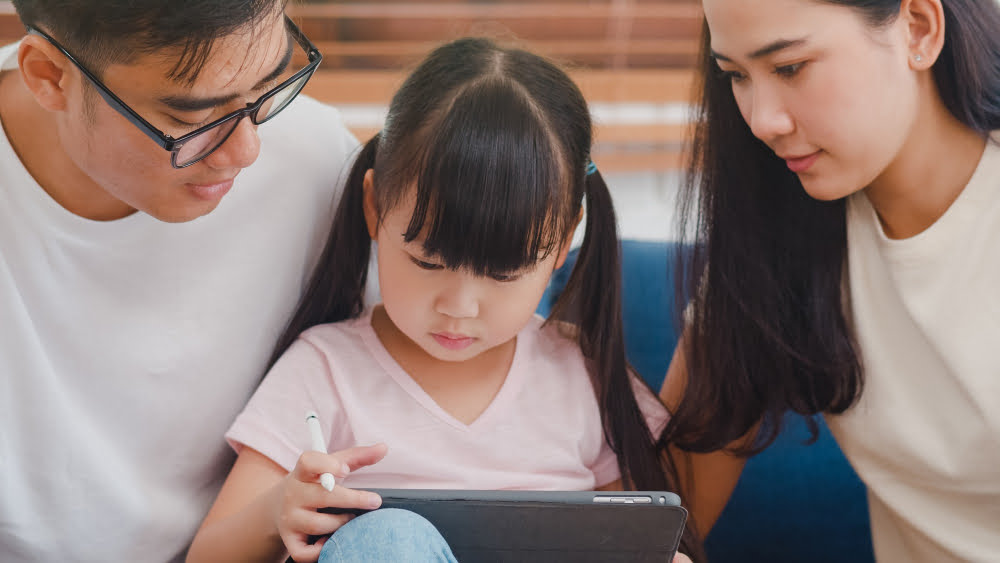Exploring new age parenting styles can provide valuable insights for raising well-rounded, confident and emotionally intelligent children in today’s ever-changing world.
New age parenting style, often referred to as “conscious parenting,” is a fresh approach that emphasizes mutual respect and understanding between parents and children. This style of parenting has shifted away from the traditional model of strict discipline and obedience, focusing more on the child’s individuality, emotions, and development.
It’s about fostering a strong parent-child bond, promoting emotional intelligence, and encouraging children to think independently. This article will delve into the principles of new age parenting, its benefits, and practical tips on how to apply this style in your day-to-day life.
Whether you’re a new parent or have been parenting for years, this comprehensive guide will provide valuable insights into new age parenting.
Key takeaways:
- New age parenting focuses on mutual respect and understanding.
- It nurtures emotional intelligence and independent thinking in children.
- Parental guidance is about advising and allowing informed decisions.
- Screen time should be balanced and made productive.
- Social media influence should be guided and critically analyzed.
Here You Will Learn:
Understanding New Age Parenting

New age parenting challenges the traditional paradigm, preferring open communication over authoritarian rules. This model centers around nurturing the child’s intrinsic strengths and individuality, rather than moulding them into any preconceived standards.
Respect for a child’s feelings and reciprocation of the same are essential elements of this style. It promotes a two-way interaction, where both parents and children learn and evolve together.
Rather than a hierarchical structure, it fosters a more collaborative relationship grounded in empathy, understanding, and love. New age parenting encourages children to express their emotions freely, helping them develop a solid emotional intelligence foundation.
Furthermore, it empowers children to make decisions, fostering self-confidence and independent thinking.
The Role of Parental Guidance

As parents embody the first role models for their children, their guidance is paramount for children’s values formation and decision-making skills. In the frame of new-age parenting, guidance doesn’t impose, but rather advises, leading to informed decisions made by the child itself.
It involves providing context, explaining consequences, and drawing from personal experiences to offer insight. This approach leaves room for children to shape their beliefs, resilience toward challenges, and understanding of social dynamics.
Consequently, children become balanced individuals equipped with critical thinking abilities and a strong moral compass.
Emphasizing Emotional Intelligence

Achieving a high degree of emotional intelligence in children involves teaching them to identify, express, and manage their emotions. This skill equips a child to handle stress, control impulses, and carry out the self-motivation needed for personal achievement. It also enables them to empathize with others, improving their interpersonal relationships.
Parents can cultivate emotional intelligence by consistently acknowledging their child’s feelings without judgment, thus helping them understand their emotions better. For instance, if your child is acting out in frustration, guide them to express their disappointment in words rather than leaving it unaddressed or responding with anger. Furthermore, encourage your child to resolve conflicts amicably, fostering a sense of responsibility and understanding towards others’ feelings.
Child Independence and Freedom of Choice

One of the key facets in this parenting approach is nurturing self-reliance, along with recognising and honoring the child’s autonomy in decision-making. This expands scope for the child to experiment, succeed, and even fail, fostering resilience and problem-solving skills over time.
For parents, the challenge here lies in striking a balance – offering guidance without being autocratic, promoting self-expression without enabling indiscipline. Encourage your child to express ideas, make choices and face the consequences. Praise their initiative, not just the outcome, to instill a healthy relationship with failure and success.
Whether choosing their clothes, planning their study schedule, or deciding their leisure activities – every small step towards independence builds their confidence, decision-making ability, and prepares them for life’s bigger challenges.
The Impact of Technology On Parenting

The digital revolution has brought forth a myriad of opportunities and challenges. Parents now have access to online resources on child upbringing. Parenting apps can track developmental milestones, suggest appropriate activities or even manage the often-maddening task of ensuring homework completion.
However, this boon also poses the challenge of excessive screen time for children, burgeoning online safety concerns and the potential for cyberbullying. As a conscious parent, it’s essential to maintain open communication about technology usage and set healthy boundaries.
Regular discussions can foster mutual trust and help your children navigate the online world responsibly.
Making Screen Time Effective

Today’s digital world has made screens a significant part of kids’ lives. While limiting use is essential, it is equally important to make it productive.
Primarily, choose quality content that is educational and interactive, promoting thought and questioning. Consider apps and shows that enhance creativity and critical thinking skills, such as coding games or nature documentaries.
Secondly, involve yourself in their digital activities. Participate in their games, watch their shows, and discuss the content. This involvement not only strengthens the parent-child bond but also allows for guidance and supervision.
Lastly, balance screen time with physical activities and playtime. Encourage habits that promote a holistic lifestyle, incorporating digital literacy and physical health. Remember, the aim is to equip children with the necessary skills to navigate a tech-oriented world, rather than shunning it altogether.
Navigating Social Media Influence

Today’s digital landscape is an integral part of children’s lives, making it essential for parents to guide their internet usage effectively. Social media, in particular, can significantly influence a child’s thoughts and behaviors.
Start by establishing an open dialogue about social media usage. Discuss different platforms, their implications, and the sort of content they may encounter online. Make them aware of online safety, privacy settings, and the potential dangers of sharing personal information.
Moreover, encourage your child to question and critically analyze what they see on social media. Promote digital literacy to help them discern between reliable and misleading information. Teach them to curate their social media feeds, encouraging engagement with positive, informative and constructive content that fosters growth and learning.
Finally, it’s crucial to model responsible social media use yourself, as children learn by observing their parents. Limit your screen time, maintain a healthy online-offline balance, and demonstrate the importance of consuming content mindfully. Note that building healthy online habits is a learning process and requires patience and consistency.
FAQ
What are the 4 styles parenting?
The four main styles of parenting are permissive, authoritative, neglectful, and authoritarian.
What is the healthiest parental style?
The healthiest parental style is the authoritative style, characterized by supportiveness, open discussions for teaching values and reasoning, setting clear limits, enforcing standards, and high levels of nurturing.
How is new parenting different from old parenting?
Modern parenting generally emphasizes leniency and individual freedom for children, distinguishing it from traditional parenting which typically adopts stricter educational practices.
What impact does the authoritative parenting style have on a child’s social development?
The authoritative parenting style positively impacts a child’s social development by promoting high levels of communication, emotional understanding, social competence, and the capacity to establish healthy relationships.
How are parenting styles influenced by cultural differences?
Parenting styles are influenced by cultural differences through the variations in values, norms, and expectations regarding child-rearing practices among different societies.
Can “helicopter parenting” affect a child’s independence and self-esteem?
Yes, “helicopter parenting” can negatively impact a child’s independence and self-esteem by inhibiting the development of self-confidence, decision-making skills, and resilience.
Your question seems incomplete, as the topic or the specific question are missing. Please provide the complete question or the area you want me to cover.